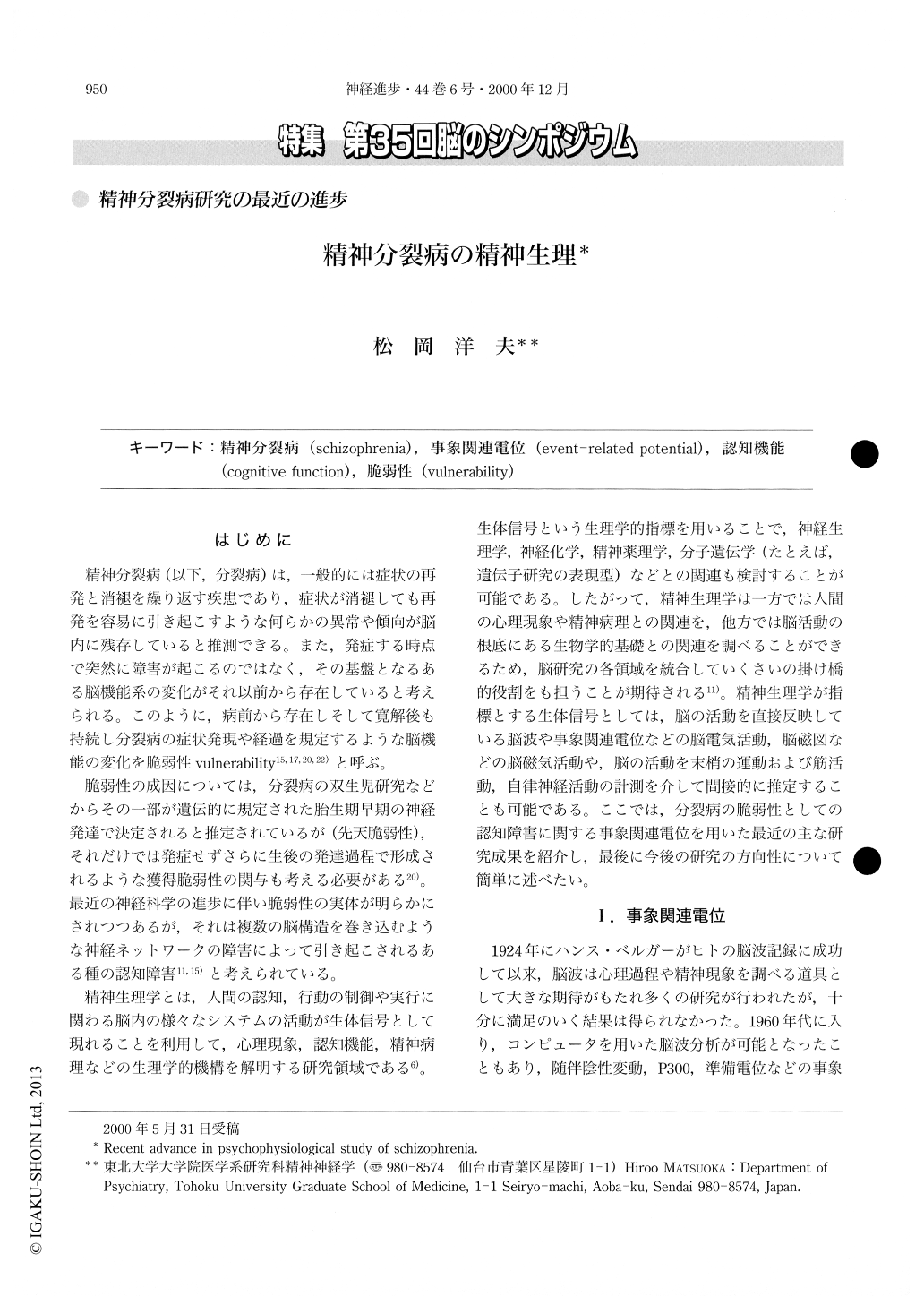Japanese
English
- 有料閲覧
- Abstract 文献概要
- 1ページ目 Look Inside
はじめに
精神分裂病(以下,分裂病)は,一般的には症状の再発と消腿を繰り返す疾患であり,症状が消褪しても再発を容易に引き起こすような何らかの異常や傾向が脳内に残存していると推測できる。また,発症する時点で突然に障害が起こるのではなく,その基盤となるある脳機能系の変化がそれ以前から存在していると考えられる。このように,病前から存在しそして寛解後も持続し分裂病の症状発現や経過を規定するような脳機能の変化を脆弱性vulnerability15,17,20,22)と呼ぶ。
脆弱性の成因については,分裂病の双生児研究などからその一部が遺伝的に規定された胎生期早期の神経発達で決定されると推定されているが(先天脆弱性),それだけでは発症せずさらに生後の発達過程で形成されるような獲得脆弱性の関与も考える必要がある20)。最近の神経科学の進歩に伴い脆弱性の実体が明らかにされつつあるが,それは複数の脳構造を巻き込むような神経ネットワークの障害によって引き起こされるある種の認知障害11,15)と考えられている。
Vulnerability to schizophrenia, which determines the onset of illness, symptomatology, drug response, and clinical course and outcome, would be present before the onset of illness and persist even during a remission period. Recent studies proved it to be a certain cognitive dysfunction. In terms of event-related potential, several candidates for a vulnerability marker of schizophrenia have been reported broadly from early sensory processing to late, higher processing ; lack of P50 attenuation to the 2nd stimuli after conditioning stimuli as an index of early sensory inhibition ;

Copyright © 2000, Igaku-Shoin Ltd. All rights reserved.


